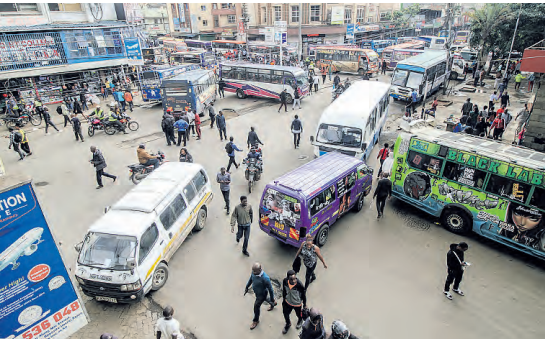
 Matatus at Tom Mboya Street in Nairobi’s CBD /FILE
Matatus at Tom Mboya Street in Nairobi’s CBD /FILE
The Nairobi City County Government has unveiled a raft of new regulations aimed at streamlining public transport and curbing noise pollution in the Central Business District (CBD).
The measures primarily target matatus (public service vehicles), businesses and entertainment venues, signalling a renewed push for urban order and tranquillity.
The key regulations targeting matatus include a music ban in the CBD, where they are now required to mute their music systems when operating within the area.
The County administration said music may only resume once the vehicles exit the area.
This move is designed to reduce noise levels that affect businesses, schools and city residents.
Further, touts and conductors are no longer allowed to shout to attract passengers.
Instead, they must display placards indicating routes and fares. The aim is to foster a more orderly and less chaotic commuting experience.
The County has also enforced a terminal curfew of 10pm, where all matatus must vacate the designated area to allow for scheduled cleaning operations, part of the city’s effort to improve hygiene and order.
Beyond public transport, the county has expanded its noise control efforts to include other sectors such as businesses, entertainment and worship venues.
The County said shops and vendors using loudspeakers or pre-recorded messages to draw in customers must cease these practices.
Further, bars, clubs and churches that play excessively loud music will face stricter enforcement.
The county government will partner with the police, the National Environment Management Authority (NEMA) and liquor licensing officers to conduct inspections and ensure compliance.
In a separate development, a proposed law could soon give the national government control over matatu fares
The NTSA Amendment Bill, 2023, sponsored by Kimilili MP Didmus Barasa, seeks to empower the Cabinet Secretary for Transport to cap fare rates for public service vehicles.
The goal is to prevent arbitrary fare hikes and introduce a more consistent and fair pricing structure for commuters.
These initiatives form part of a broader campaign by the NCCG to create a more orderly, livable urban environment.













